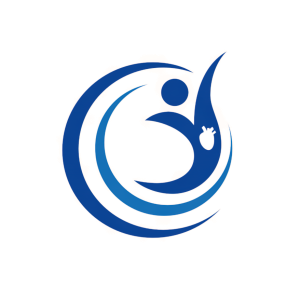XORTX Announces Submission of Orphan Drug Designation Request for XRx-008 Program to Treat Autosomal Dominant Kidney Disease
Rhea-AI Summary
XORTX Therapeutics submitted an Orphan Drug Designation request to the FDA for its XRx-008 program aimed at treating Autosomal Dominant Polycystic Kidney Disease (ADPKD). This designation, intended for rare diseases affecting fewer than 200,000 individuals in the US, offers several advantages such as seven years of post-approval exclusivity and tax credits on clinical testing expenses. The XRx-008 program utilizes XORLO, a proprietary formulation of oxypurinol, which showed positive results in animal models, potentially slowing the decline of kidney function in ADPKD patients. The company will provide updates on the ODD application as they become available.
Positive
- Submission of Orphan Drug Designation to the FDA for XRx-008 may enhance market position and funding opportunities.
- Potential tax credits of 25% on clinical testing costs could improve financial outlook.
- Positive results in animal models may indicate efficacy for slowing kidney function decline.
Negative
- None.
News Market Reaction 1 Alert
On the day this news was published, XRTX gained 8.47%, reflecting a notable positive market reaction.
Data tracked by StockTitan Argus on the day of publication.
CALGARY, Alberta, Feb. 01, 2023 (GLOBE NEWSWIRE) -- XORTX Therapeutics Inc. ("XORTX" or the “Company”) (NASDAQ: XRTX | TSXV: XRTX | Frankfurt: ANU), a late-stage clinical pharmaceutical company focused on developing innovative therapies to treat progressive kidney disease, is pleased to announce it submitted an Orphan Drug Designation (“ODD”) Request to the US Food and Drug Administration (“FDA”) for the XRx-008 program for the treatment of Autosomal Dominant Polycystic Kidney Disease (“ADPKD”). XORTX anticipates updates regarding the ODD application and will provide announcements as information becomes available.
Drugs intended to treat orphan diseases (rare diseases that affect less than 200,000 people in the US) are eligible to apply for ODD, which provides multiple benefits to the sponsor during development and after approval. XORTX intends to pursue these benefits as part of the drug development for XRx-008 for treatment of ADPKD, pending designation of the ODD Request.
Benefits of Orphan Drug Designation
Under the Orphan Drug Act, drug companies can apply for ODD, and if granted, the drug will have a status which gives companies exclusive marketing and development rights along with other benefits to recover the costs of researching and developing the drug. A tax credit of
Key benefits of ODD:
- Seven years exclusivity post-approval
- Tax credits of
25% off the clinical drug testing cost awarded upon approval - Waiver of FDA User Fees
XORTX recently presented positive results in animal models of PKD in both mouse and rat, showing the ability of XORTX’s proprietary formulation of oxypurinol, XORLOTM, to attenuate expansion of kidneys, due to the cyst promoting effects of aberrant purine metabolism and hyperuricemia - at the American Society of Nephrology meeting during the November 2022 meeting.
About the XRx-008 Program
Oxypurinol is a xanthine oxidase inhibitor (“XOI”) with important pharmacologic characteristics ideal for administration to individuals with ADPKD. Key pharmacologic attributes include:
1/ The ability to act in the circulation, kidney and cardiovascular tissue and inhibit the production of uric acid and so attenuate the mechanism of injury and accelerating effect of xanthine oxidase on progressing diseases.
2/ XORLOTM provides substantially increased absorption of oxypurinol. This approach provides an effective, well tolerated drug with an extensive clinical safety experience suggesting the Company’s XRx-008 program has the capacity to provide superior XOI to slow the accelerating decline kidney function during ADPKD progression.
About ADPKD
ADPKD is a rare disease that affects more that 10 million individuals worldwide.1,2 ADPKD is typically diagnosed based upon expansion of fluid-filled cysts in the kidneys. Over time, the increasing number and size of cysts can contribute to structural and functional changes to kidneys and is frequently accompanied by chronic pain which is a common problem for patients with ADPKD.3 Expansion of cysts is thought to compress healthy functioning tissue surrounding the cysts and contribute to further loss of kidney function, fibrosis, impaired nutrient exchange and impaired kidney function, accompanied later by end-stage renal disease.1 For individuals with progressing ADPKD, treatment recommendations include anti-hypertensive treatment, dietary restrictions, and, for a limited percentage of suitable patients, pharmacotherapy.4 New, more broadly applicable therapies to effectively slow decline of kidney function in ADPKD are needed.
About XORTX Therapeutics Inc.
XORTX is a pharmaceutical company with two clinically advanced products in development: 1) our lead, XRx-008 program for ADPKD; and 2) our secondary program in XRx-101 for acute kidney and other acute organ injury associated with Coronavirus / COVID-19 infection. In addition, XRx-225 is a pre-clinical stage program for Type 2 Diabetic Nephropathy. XORTX is working to advance its clinical development stage products that target aberrant purine metabolism and xanthine oxidase to decrease or inhibit production of uric acid. At XORTX, we are dedicated to developing medications to improve the quality of life and future health of patients. Additional information on XORTX is available at www.xortx.com.
For more information, please contact:
| Allen Davidoff, CEO | Nick Rigopulos, Director of Communications | ||
| adavidoff@xortx.com or +1 403 455 7727 | nick@alpineequityadv.com or +1 617 901 0785 | ||
| Media Inquiries, David Melamed, Ph.D. | |||
| david.melamed@russopartnersllc.com or +1 212 845 4225 |
References:
- Wiley C., Kamat S., Stelhorn R., Blais J., Analysis of nationwide date to determine the incidence and diagnosis of autosomal dominant polycystic kidney disease in the USA, Kidney Disease, 5(2): 107-117, 2019
- Bergmann C., Guay-Woodford L.M., Harris P.C., Horie S., Peters D.J., Torres V.E., Polycystic Kidney Disease, Nat Rev Dis Primers. 4(1): 50, 2018
- https://pkdcure.org/living-with-pkd/chronic-pain-management/
- Gimpel C., Bermann C., Bockenhauer D., et al., International consensus statement of the diagnosis and management of autosomal dominant polycystic kidney disease in children and young people, Nat Rev Nephrol 15(11):713-726, 2019
Neither the TSX Venture Exchange nor Nasdaq has approved or disapproved the contents of this news release. No stock exchange, securities commission or other regulatory authority has approved or disapproved the information contained herein.
Forward Looking Statements
This press release contains express or implied forward-looking statements pursuant to U.S. Federal securities laws. These forward-looking statements and their implications are based on the current expectations of the management of XORTX only, and are subject to a number of factors and uncertainties that could cause actual results to differ materially from those described in the forward-looking statements. Except as otherwise required by law, XORTX undertakes no obligation to publicly release any revisions to these forward-looking statements to reflect events or circumstances after the date hereof or to reflect the occurrence of unanticipated events. More detailed information about the risks and uncertainties affecting XORTX is contained under the heading “Risk Factors” in XORTX’s Registration Statement on Form F-1 filed with the SEC, which is available on the SEC's website, www.sec.gov (including any documents forming a part thereof or incorporated by reference therein), as well as in our reports, public disclosure documents and other filings with the securities commissions and other regulatory bodies in Canada, which are available on www.sedar.com.








